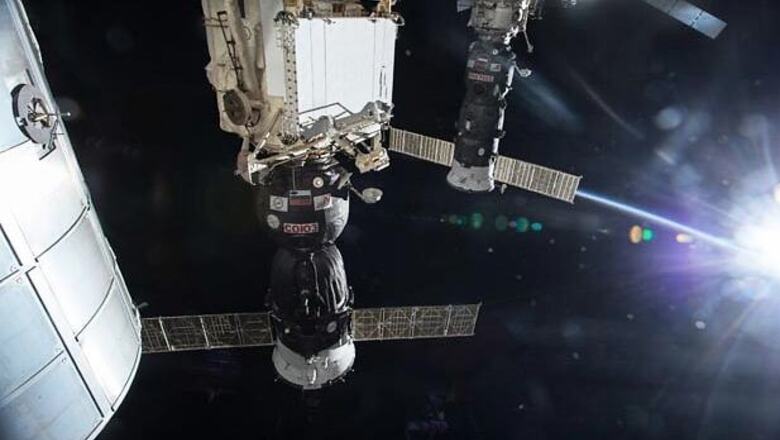
views
Cape Canaveral: An unmanned Russian spacecraft on a failed resupply run to the International Space Station is heading back toward Earth faster than original predictions, with a fiery demise in the atmosphere expected early on Friday, US Air Force tracking data shows.
The Russian Progress capsule, loaded with more than three tons of food, fuel and supplies, blasted off aboard a Soyuz rocket from the Baikonur Cosmodrome in Kazakhstan on April 28.
Flight controllers lost contact with the freighter shortly after it reached orbit, and tracking radars later showed the capsule was tumbling. The cause of the accident is under investigation.
The Air Force’s Joint Space Operations Center, which tracks satellites and junk orbiting Earth, found 44 pieces of debris near the Progress and its discarded upper-stage booster, a possible indication that an explosion or other problem occurred just before or during spacecraft separation.
The Russian space agency Roscosmos declined to comment. Results of its preliminary investigation are expected on May 13.
Unable to raise its altitude, the Progress capsule is being pulled back toward Earth. On Wednesday, it was flying as low as 107 miles (173 km) above the planet, according to the satellite tracking website n2yo.com.
The Air Force’s contractor-operated Space-Track.org website shows the capsule due to plunge back into Earth’s atmosphere around 5 am EDT Friday.
The capsule and cargo are expected to burn up in the atmosphere, with any surviving debris likely to impact in the ocean.
“Only a few small pieces of structural elements could reach the planet’s surface,” Roscosmos said in a statement.
The exact location where Progress will re-enter the atmosphere is not yet known. Earth’s atmosphere, which creates drag on a satellite, constantly expands and contracts due to solar activity and other factors.
Dozens of spacecraft larger than Progress have made safe though uncontrolled returns into Earth’s atmosphere, including the United States’ 152,000 pound (69,000 kg) Skylab space station in 1979 and Russia’s 29,800 pound (13,500 kg) failed Phobos-Grunt Mars probe in 2012.
A launch accident claimed another Russian Progress cargo ship in 2011. NASA contractor Orbital ATK lost a station cargo shipment during a botched launch last year. Privately owned Space Exploration Technologies and Japan also fly freighters to the station, a $100 billion research laboratory that flies about 250 miles (418 km) above Earth.
















Comments
0 comment